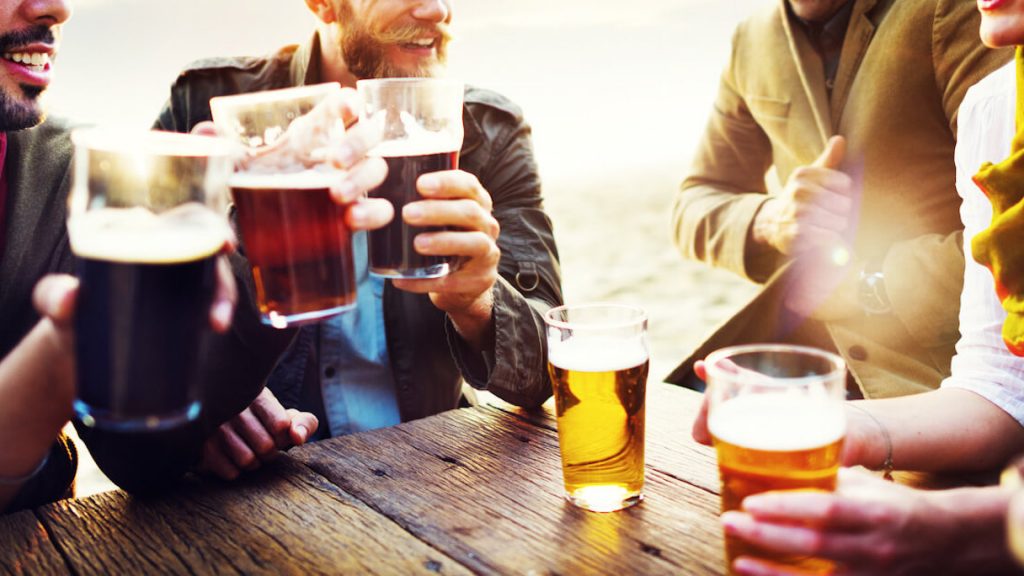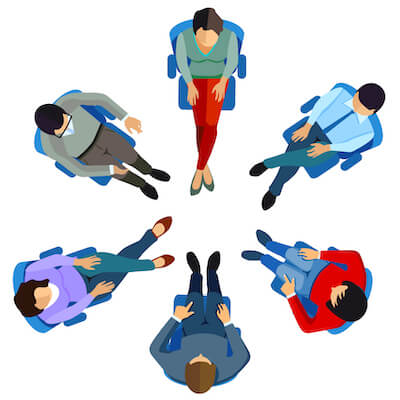
By Sarah Sheppard | Rewire
Alcoholics Anonymous just wasn’t working for Allie McCormick. Despite years of wrestling with her relationship with alcohol, she didn’t identify as an alcoholic, she couldn’t relate to the higher-power aspect of AA and she found the meetings downright depressing.
She also struggled to find a support system that would help her end her cycle of dependency.
“I (had) been told more than once that I (had) a drinking problem and needed to stop drinking, yet the people telling me were unable to stop themselves,” she said. “It was a finger-pointing, mixed message scenario and highly ineffective.”
But about a year ago, after 17 years of sobriety yo-yoing, she ended her relationship with alcohol for good. She focused on completing a self-imposed, 100-days-without-alcohol challenge and started a blog, Sober Alley, to document the experience. Today, it’s a resource that promotes positive sobriety and self-care.

Like McCormick, more than 15 million U.S. adults experience an alcohol use disorder, according to the National Institute on Alcohol Abuse and Alcoholism.
It’s common knowledge that overuse of alcohol can lead to risky behavior and cause severe health problems, like heart disease and heart attacks, pancreatitis and liver disease. The problem is that alcohol is everywhere—in social media posts, on our parents’ counter, in the fridge at work, on our flight home, even hidden in chocolates and coffee creamers.
At wedding receptions, work events, happy hours, baby showers, we’re faced with the same dilemma: How much is too much?
“There’s a lot we don’t know” about alcohol’s impact on our bodies and brains, said Howard L. Forman, assistant professor of psychiatry and behavioral sciences at the Albert Einstein College of Medicine.
The problem is, he said, “society can’t really exist without” it.
How to know if you have a problem
Not all alcoholism is the same. According to the National Institute on Alcohol Abuse and Alcoholism, there are five types of alcoholics.
However, alcohol abuse is a big umbrella. You can have problems with alcohol and not be considered an “alcoholic.”
To determine whether you have an unhealthy relationship with alcohol, think back honestly on your experiences with it. If your drinking often causes you to experience physical or social impairment, or employment, education or legal ramifications, there is cause for concern, said Tala Johartchi, a licensed clinical psychologist and addiction expert.
The importance of your ‘why’
Everybody who drinks has a reason. That reason can change throughout the day, month or year. You might drink to ease your stress, avoid insomnia, remove social discomfort, maximize your experience, eliminate anxiety or simply because you enjoy it.
Figuring out your “why” is the first step to addressing your relationship with alcohol. When a person knows they’re drinking for the wrong reasons, but they drink anyway, it can be problematic.
Though it provides temporary relief, drinking alcohol to relieve stress or anxiety can lead to more anxiety and eventually, alcohol dependence.
When it comes to who develops alcohol dependence and who doesn’t, “genetics play a bigger part than we know,” Forman said.
Whether you inherit alcoholism or not, surrounding yourself with heavy drinkers can be just as detrimental as your genetic makeup. Your social circles, your work environment and your parents’ drinking habits all factor into your own drinking habits.
When stress leads to alcohol abuse
Young adults today are the most stressed generation, according to the American Psychology Association. But it’s difficult to determine exactly why.
There are lots of of potential reasons: lack of independence, social media pressures, societal expectations, job changes and financial instability are all suspects.
But everyone, regardless of age, experiences stress. How you deal with it is what matters most. And for many, alcohol is an affordable, accessible quick fix. And that’s why lots of people who have an alcohol dependency won’t come to terms with it, Johartchi said.
Many “people believe if they admit to having a problem (with alcohol) then they have to do something about it,” she said. “Most people aren’t ready to give up drinking” because of the benefits it provides, so they don’t address the problem.
There’s lots of hope for recovery
Young adults might be experiencing high stress, but, according to Houghton, “millennials are great at engaging support and being open about what they’re going through.”
Houghton said that half of her patients are people under 40 dealing with alcohol or drug problems.
Statistically, young adults today, unlike other generations, are more interested in self-improvement and more likely to achieve their personal goals.
We’re also more open to therapy. According to a survey by American University, more than 70 percent of millennials are comfortable visiting a counselor or therapist and 75 percent are open to discussing mental health topics.
The pros and cons of being online
For better or for worse, “social media is a megaphone” when it comes to alcohol, Forman said.
Seeing others drink can tempt, upset or trigger. And regardless of what social media influencers or health blogs say about red wine or craft beer, “no (expert) recommends using alcohol for any health purpose,” Forman said.
While social media often glorifies alcohol abuse, it also lends support to those seeking it. There are online groups, Reddit communities and forums full of people who are dealing with temptations and triggers and living a sober lifestyle.
McCormick’s website, Sober Alley, is one of those communities. Though she believes societal pressures to drink are still very high, “alcohol dependence (and) addiction isn’t as much in the shadows as it used to be,” she said.
More people are coming forward to share their stories of alcohol abuse and the positives of living sober.
“Social media has made finding a virtual recovery community so much easier for people who can’t get to meetings or are too anxious to attend face-to-face meetings,” said Ginger Houghton, a therapist at Bright Spot Counseling in Bloomfield Hills, Michigan.
Alcoholics Anonymous isn’t for everyone, and it doesn’t have to be for you—but surrounding yourself with low-risk drinkers or non-drinkers is important if you want to eliminate the drug from your life.
Your life without alcohol
A sober lifestyle doesn’t have to be boring or embarrassing. Houghton’s motto to those wanting to quit or cut down: “Keep the novelty, lose the booze.” Skip the wine and yoga event and try rooftop yoga, for example. Alternatives to partying: Read more books. Listen to podcasts. Take community classes. Learn a new skill. Join a sobriety group.
You must be willing to put in the work to maintain an alcohol-free lifestyle. But you’ll need support from other people to do that. If alcohol is affecting important areas of your life or putting you in danger, reach out to a friend, family member, support group or professional expert to start a discussion.
If you want or need to seek professional help to stop drinking, talk to your doctor. They can direct you to a therapist or devise another treatment plan to get you going in the right direction.
“Try to be honest with yourself about the pros and cons of alcohol in moving towards the life you want,” Houghton said.
![]() This article originally appeared on Rewire.
This article originally appeared on Rewire.
© Twin Cities Public Television - 2019. All rights reserved.
Read Next



